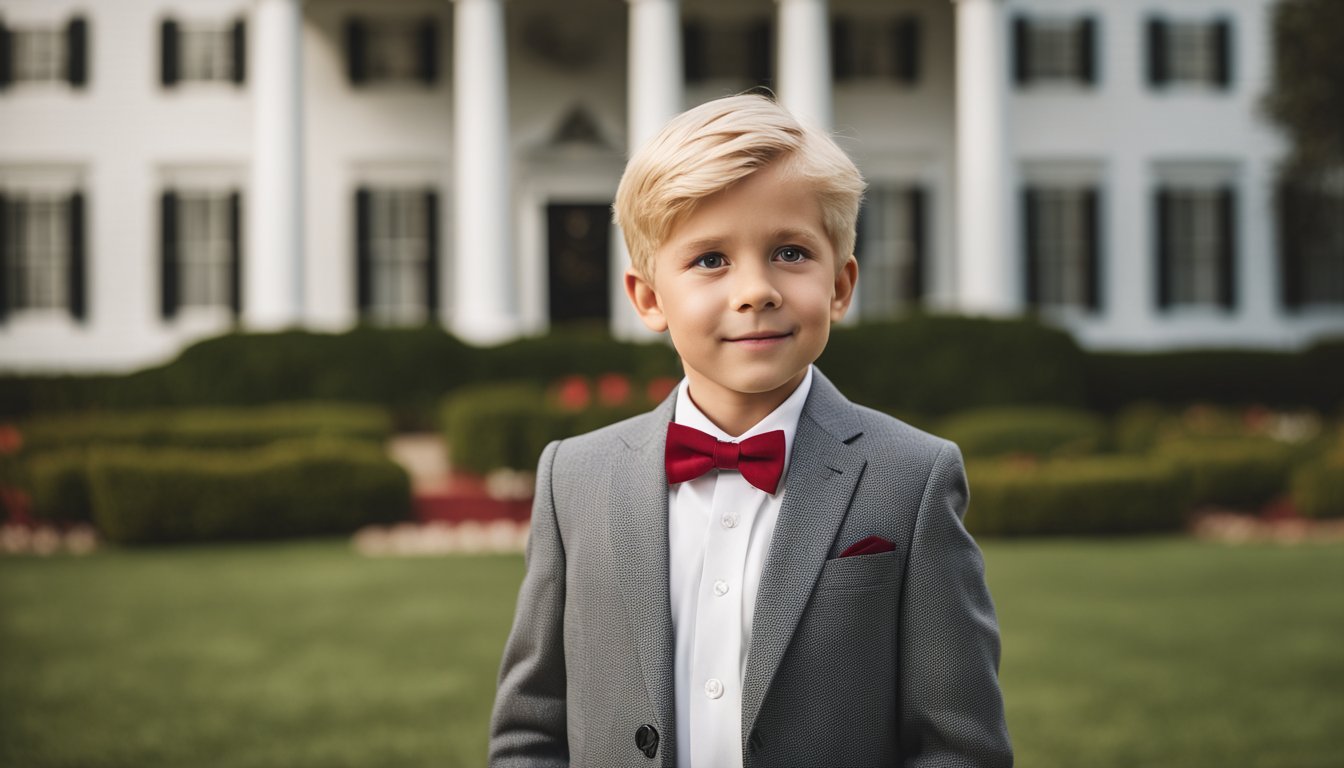The Formative Years of Donald Trump in Queens New York
Early Years of a Future President
Donald Trump's childhood shaped the man who would become a prominent figure in American business and politics. Born in 1946 in Queens, New York, Trump grew up in a wealthy family led by his father, Fred Trump, a successful real estate developer. Young Donald displayed a strong personality and competitive nature from an early age, traits that would define his future endeavors.
Trump attended private schools and spent his formative years in New York City. His parents sent him to the New York Military Academy at age 13, where he gained discipline and leadership skills. This experience likely influenced his assertive management style later in life.
As a child, Trump was exposed to the real estate industry through his father's work. He often accompanied Fred Trump to construction sites and learned about property development. These early experiences laid the foundation for Donald's future career in real estate and his eventual leadership of the Trump Organization.
Early Life and Family Background
Donald Trump's childhood was shaped by his family's wealth and his strong-willed personality. His early years in Queens and experiences at military school laid the foundation for his future business and political pursuits.
Birth and Parents
Donald John Trump was born on June 14, 1946, in Queens, New York. He was the fourth of five children born to Fred Trump and Mary Anne MacLeod Trump. Fred Trump was a successful real estate developer, while Mary Anne was a Scottish immigrant who worked as a homemaker.
The Trump family lived in a large house in Jamaica Estates, a wealthy neighborhood in Queens. Fred Trump's success in real estate provided the family with a comfortable lifestyle and significant financial resources.
Siblings and Early Relationships
Donald had four siblings: Maryanne, Fred Jr., Elizabeth, and Robert. As children, the Trump siblings were close but also competitive. Donald was particularly influenced by his older brother Fred Jr., who initially joined the family business but later left to become an airline pilot.
Fred Jr.'s departure from the family business had a lasting impact on Donald. It reinforced his drive to succeed in real estate and gain his father's approval. Donald's relationship with his father was complex, marked by both admiration and a desire to surpass Fred Sr.'s achievements.
Education and Early Development
Trump attended the Kew-Forest School in Forest Hills, Queens. However, his behavior at school was often disruptive, leading his parents to send him to the New York Military Academy at age 13.
At the military academy, Trump's leadership qualities emerged. He excelled in athletics and rose to the rank of captain of the student regiment. The structured environment helped channel his energy and ambition.
Despite his academic improvements, Trump's aggressive personality persisted. Classmates described him as a "bully" who ruled dormitory life with an iron fist. These early experiences at the academy shaped his leadership style and competitive nature.
Influence of Family Business
Donald Trump's early exposure to real estate and business came through his father's successful property development company. This shaped Trump's future career path and business acumen from a young age.
Fred Trump's Real Estate Empire
Fred Trump built a substantial real estate empire in New York City, focusing on middle-class housing in the outer boroughs. He constructed thousands of apartments and row houses, amassing considerable wealth and influence in the local real estate market.
Fred's business acumen and tenacity set a powerful example for young Donald. The elder Trump's emphasis on frugality, hard work, and seizing opportunities left a lasting impression on his son.
Fred often brought Donald to construction sites and taught him the intricacies of property development. This hands-on experience proved invaluable in shaping Donald's future career path.
Early Exposure to Real Estate
Donald Trump began learning about real estate at a young age through his father's business. He observed negotiations, property management, and construction processes firsthand.
As a teenager, Donald spent summers working at his father's properties. He performed various tasks, from collecting rent to maintenance work, gaining practical knowledge of property operations.
This early immersion in the family business sparked Donald's interest in real estate. It provided him with a foundation of industry knowledge and connections that would prove crucial in his later career.
Donald's exposure to his father's success and business strategies influenced his own ambitious pursuits in the real estate world. It instilled in him a drive to make his mark on the industry and expand beyond his father's achievements.
Formative Experiences
Donald Trump's early years were marked by key events that shaped his future persona and business acumen. His time at military school, development of his personal character, and initial exposure to the business world all played crucial roles.
Military Academy
At age 13, Trump's parents sent him to New York Military Academy due to behavioral issues. This strict environment instilled discipline and structure in young Donald. He thrived in the regimented setting, excelling both academically and athletically.
The academy's emphasis on leadership roles allowed Trump to develop his commanding presence. He rose to the rank of captain of the student regiment, honing skills in delegating tasks and motivating others.
Military school also exposed Trump to a diverse group of classmates from various backgrounds. This experience broadened his perspectives and social skills, preparing him for future business interactions.
Character Development
Trump's childhood was marked by a complex relationship with his father, Fred Trump. Fred's stern and demanding nature pushed young Donald to be ambitious and competitive from an early age.
As a child, Trump displayed a forceful personality. He was known for being assertive and outspoken, traits that would define his later public persona. One incident reportedly involved him punching his second-grade music teacher.
Trump's mother Mary's brief illness when he was two years old may have impacted his emotional development. This early experience potentially contributed to his self-reliant tendencies.
Introduction to Business
Fred Trump's real estate business provided Donald with his first glimpse into the world of property development. As a teenager, Trump often accompanied his father to construction sites and meetings.
These early exposures sparked Trump's interest in real estate. He learned the basics of property valuation, negotiation tactics, and the importance of location in development projects.
Trump's father also instilled in him the value of hard work and financial savvy. Fred's lessons on frugality and reinvestment would influence Donald's future business strategies and risk-taking approach.
Family Dynamics
Donald Trump's childhood was shaped by complex family relationships and values. His upbringing in Queens, New York, played a significant role in molding his personality and worldview.
The Role of Siblings
Donald Trump grew up with four siblings: Maryanne, Fred Jr., Elizabeth, and Robert. As the fourth child, he experienced a unique position within the family. The Trump children often engaged in competitive activities, fostering a drive for success. Donald's relationship with his older brother Fred Jr. was particularly influential, as Fred's struggles with alcoholism later impacted Donald's teetotaling lifestyle.
Donald and his siblings attended private schools in Queens, where they developed strong academic foundations. The family's affluence allowed for educational opportunities that set them apart from many of their peers.
Parental Influence
Fred Trump, Donald's father, was a strict and demanding figure who instilled a strong work ethic in his children. He introduced Donald to the real estate business at a young age, taking him to construction sites and teaching him the intricacies of property development.
Mary Anne MacLeod Trump, Donald's mother, was born in Scotland and immigrated to the United States. She played a more nurturing role but also emphasized the importance of ambition and success. Her influence can be seen in Donald's later interest in golf and his affinity for Scotland.
Family Values
The Trump family placed great importance on achievement and financial success. Fred Trump's motto, "be a killer," reflected the competitive spirit he sought to instill in his children. This emphasis on winning shaped Donald's approach to business and later, politics.
Loyalty to family was another key value in the Trump household. Despite occasional conflicts, the siblings maintained close ties throughout their lives. This sense of family loyalty would later extend to Donald's own children and business dealings.
The Trumps also valued education, sending their children to prestigious institutions. However, practical experience and "street smarts" were equally prized, influencing Donald's later business approach.
From Childhood to Businessman
Donald Trump's journey from childhood to becoming a prominent businessman was marked by key experiences and decisions. His time in college, early career moves, and entry into real estate shaped his path to success.
College Years
Trump attended Fordham University for two years before transferring to the University of Pennsylvania's Wharton School. At Wharton, he studied economics and real estate, graduating in 1968 with a bachelor's degree.
His time at Penn exposed him to business concepts and networking opportunities that would prove valuable in his future endeavors. Trump was known as a confident and ambitious student, already displaying the bold personality that would become his trademark.
Early Career Moves
After graduation, Trump joined his father Fred's real estate company, Elizabeth Trump & Son. He initially focused on residential properties in Brooklyn, Queens, and Staten Island.
Trump's first major project was the renovation of the Swifton Village apartment complex in Cincinnati, Ohio. This venture demonstrated his ability to turn struggling properties into profitable investments.
In 1971, he moved to Manhattan, seeking larger and more prestigious projects. This decision marked a significant shift in his career trajectory.
Evolution into Real Estate
Trump's move to Manhattan signaled his ambition to make a name for himself in the high-stakes world of New York real estate. He rebranded the family business as the Trump Organization in 1973.
His first major Manhattan project was the renovation of the Grand Hyatt Hotel in 1976. This success was followed by the construction of Trump Tower in 1983, which became his signature property and headquarters.
Trump expanded into casinos, golf courses, and luxury properties across America. His bold deals and flamboyant style garnered media attention, helping build the Trump brand beyond real estate.
Personal Development
Donald Trump's personal development during childhood shaped key aspects of his personality and interests. His early experiences laid the foundation for traits and pursuits that would define his later life and career.
Traits and Characteristics
Trump displayed a forceful personality from a young age. He was known for being assertive and competitive, traits that would later characterize his business and political dealings. His father, Fred Trump, reportedly instilled in him the belief that life was a constant battle for success.
Trump also showed signs of leadership early on. At the New York Military Academy, he rose to the rank of captain of the student regiment. This experience likely fostered his desire to be in charge and command respect from others.
His childhood was marked by privilege, which influenced his worldview and expectations. Growing up in a wealthy family in Queens, Trump became accustomed to a life of comfort and status.
Interests and Activities
As a child, Trump developed a passion for sports, particularly baseball. He excelled as a player and even considered pursuing a professional career. This early athletic interest later translated into his love for golf, which became a significant part of his adult life.
Trump also showed an early interest in real estate, often accompanying his father to construction sites. This exposure to the family business sparked his fascination with building and development projects.
His time at the military academy introduced him to a structured environment and disciplined lifestyle. These experiences likely contributed to his later emphasis on order and strong leadership.
Impact of Youth on Later Life
Trump's childhood experiences significantly influenced his adult personality and career choices. The competitive spirit fostered in his youth translated into his aggressive business tactics and political style.
His early exposure to real estate through his father's work laid the groundwork for his future empire. The leadership skills developed at military school prepared him for his roles as a business tycoon and eventually, a political figure.
Trump's privileged upbringing shaped his views on success and wealth, driving his ambition to expand his family's fortune and build his own brand. These formative years set the stage for the public persona he would cultivate throughout his adult life.
Cultural and Social Context
Donald Trump's childhood was shaped by the unique cultural landscape of New York City and broader societal trends of mid-20th century America. His formative years coincided with significant shifts in social norms and cultural values.
New York in the 1950s and 1960s
New York City in the 1950s and 1960s was a vibrant metropolis undergoing rapid change. The city experienced an economic boom, with a thriving business sector and expanding suburbs. Manhattan's skyline grew taller as new skyscrapers reshaped the urban landscape.
Cultural diversity increased as waves of immigrants arrived, transforming neighborhoods and enriching the city's cultural tapestry. The arts scene flourished, with Broadway theaters, jazz clubs, and avant-garde galleries drawing creative talents from around the world.
Trump grew up in the affluent neighborhood of Jamaica Estates in Queens, a stark contrast to the working-class areas nearby. This environment likely influenced his perceptions of wealth and social status from an early age.
Influence of the Era
The 1950s and 1960s saw significant social movements and cultural shifts that impacted American society. The Civil Rights Movement gained momentum, challenging racial segregation and discrimination. The Women's Rights Movement advocated for gender equality in various spheres of life.
The Cold War loomed large, influencing political discourse and shaping public attitudes. The space race captured the nation's imagination, fostering a sense of technological optimism and national pride.
Consumer culture boomed, with television becoming a central fixture in American homes. This new medium shaped popular culture and advertising, potentially influencing young Trump's views on image and self-promotion.
These cultural currents, combined with New York's unique social dynamics, formed the backdrop against which Donald Trump's early personality and worldview developed.







